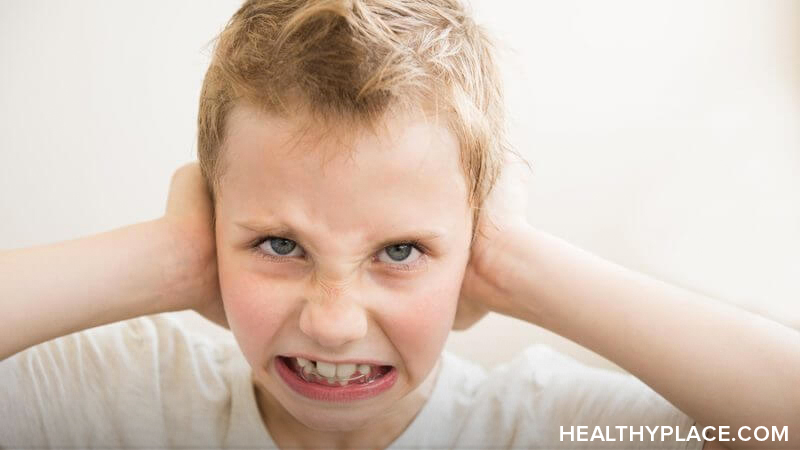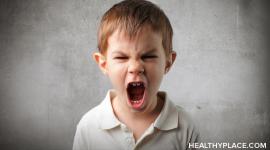What Causes Emotional and Behavioral Disorders?

Emotional and behavioral disorders are so disruptive that parents and others frequently want to know what causes them. When a child or adolescent consistently has intense emotional or physical outbursts, their relationships and learning suffer. Adults and other children and teens are also negatively affected by the eruptions of feelings and problem behaviors. Unfortunately for parents and other adults in the child’s life, the causes of emotional and behavioral disorders (sometimes abbreviated ED, BD, and/or E/BD) are still largely unknown or not well understood. Theories are being developed and studied though, and some have emerged that appear to be sound causes of these difficult disorders.
As psychological researchers have studied patterns of behavior and emotional dysfunction, they’ve discovered that the causes of emotional and behavioral disorders fall into different groups. Six categories are at the source of disorders of behavior and emotion:
- Biological
- Developmental
- Home environment-related
- Learned
While there is no single cause of emotional and behavioral disorders, there are factors at work that contribute to the unwanted actions and expression of feelings.
Biological Causes of Emotional and Behavioral Disorders
Biological causes originate within the child or teen. The brain is often the root source of the development of E/BD. Sometimes there’s a chemical imbalance. Other times, brain development is affected. Sometimes, too, brain injury leads to problems in the emotional center of the brain. Experiencing trauma, with or without a diagnosis of posttraumatic stress disorder (PTSD), negatively affects brain processing and can lead to emotional and behavior problems.
Sometimes, problems with a mother’s pregnancy and delivery can cause damage to an unborn or newborn baby. These difficulties can contribute to future emotional and behavioral disorders. Additionally, if a child’s mother used drugs or alcohol during pregnancy, the child is at increased risk of many physical- and mental health problems, including emotional and behavioral disorders.
Illness is a suspected cause of E/BD. Illnesses or physical disability have been shown to cause or contribute to disturbances in behavior and emotion. While not an illness, malnourishment has been implicated in these disorders, too.
Genetics, it seems, also plays a part in the development of E/BD, although the exact link remains unclear. Perhaps relating to genetics is personality. A child’s ingrained temperament can predispose them to emotional and behavioral problems and disorders if other circumstances are present.
Developmental Causes of Emotional and Behavioral Disorders
Development refers to the lifelong process of changing and maturing. Every stage of life has tasks that must be completed successfully for mental health and life satisfaction. When a child’s development is disrupted and problematic, there can be negative consequences for mental health and cognitive growth.
Emotional and developmental disorders can spring from these developmental causes:
- Attachment problems, either lack of positive attachment to the primary caregiver or overattachment leading to clinginess and difficulties separating from the caregiver
- A failure to develop trust during infancy and early toddlerhood, resulting in fear and mistrust
- Inability to experience some autonomy and instead internalize a sense of shame for exploring
- Thwarted attempts to show initiative and instead made to feel guilty for wanting to try new things
- Failure to experience a sense of competence, which leads to feelings of inferiority, during the elementary years
When kids don’t experience success at any one of these developmental tasks, their risk of developing E/BD increases, and the more developmental problems a child has, the greater the risk for E/BD.
Causes of Emotional and Behavioral Disorders: Home Life
Parents are vital in the healthy development of their children. Some aspects of parenting or the home environment can contribute to emotional and behavioral disorders. These include:
- Significant, chronic stress in the home
- Lack of structure
- Authoritarian parenting style with rigid, excessive rules and punishments
- Permissive parenting with few if any expectations, limits, or establishment of acceptable behaviors
- Inconsistent expectations and discipline
- Disinterested, distant parents
- Abuse
- Violence and general dysfunction in the home
- More negative than positive interactions in the home
Creating and maintaining a healthy, positive, loving environment is healthy for everyone in the home. Most communities have parenting programs to help parents and kids thrive.
See also How Your Parenting Style Can Affect Your Child’s Mental Health
Learned Behavior: A Cause of Emotional and Behavior Disorders
Sometimes, there are no underlying biological or developmental causes of emotional and behavioral disorders. Instead, children learn that outbursts get them what they want and need—attention from the adults in their lives. Ways they learn this include:
- High levels of negativity and pessimism modeled in the home
- Associating punishment for behavior problems with receiving more attention
- Realizing that acting out is the only way to receive a response from parents or teachers
Multiple factors are potential causes of emotional and behavioral disorders. Knowing how biology, development, and parenting and the home environment contribute to E/BD will help you take measures to give your kids positive experiences from birth (or prenatally) through the child and teen years.
APA Reference
Peterson, T.
(2022, January 11). What Causes Emotional and Behavioral Disorders? , HealthyPlace. Retrieved
on 2026, January 23 from https://www.healthyplace.com/parenting/behavior-disorders/what-causes-emotional-and-behavioral-disorders



